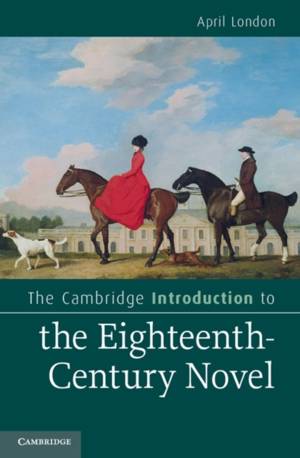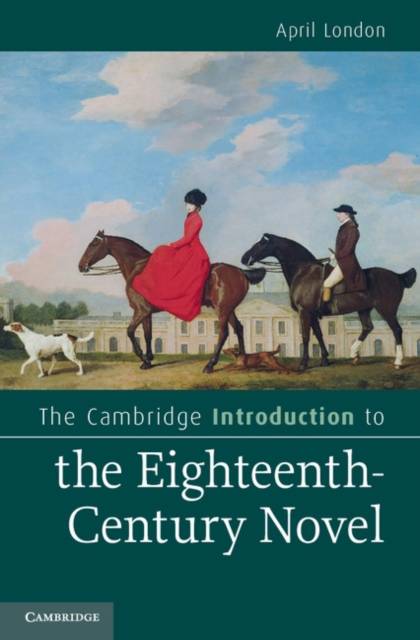
Bedankt voor het vertrouwen het afgelopen jaar! Om jou te bedanken bieden we GRATIS verzending (in België) aan op alles gedurende de hele maand januari.
- Afhalen na 1 uur in een winkel met voorraad
- In januari gratis thuislevering in België
- Ruim aanbod met 7 miljoen producten
Bedankt voor het vertrouwen het afgelopen jaar! Om jou te bedanken bieden we GRATIS verzending (in België) aan op alles gedurende de hele maand januari.
- Afhalen na 1 uur in een winkel met voorraad
- In januari gratis thuislevering in België
- Ruim aanbod met 7 miljoen producten
Zoeken
The Cambridge Introduction to the Eighteenth-Century Novel
April London
€ 106,45
+ 212 punten
Uitvoering
Omschrijving
In the eighteenth century, the novel became established as a popular literary form all over Europe. Britain proved an especially fertile ground, with Defoe, Fielding, Richardson and Burney as early exponents of the novel form. The Cambridge Introduction to the Eighteenth-Century Novel considers the development of the genre in its formative period in Britain. Rather than present its history as a linear progression, April London gives an original new structure to the field, organizing it through three broad thematic clusters - identity, community and history. Within each of these themes, she explores the central tensions of eighteenth-century fiction: between secrecy and communicativeness, independence and compliance, solitude and family, cosmopolitanism and nation-building. The reader will gain a thorough understanding of both prominent and lesser-known novels and novelists, key social and literary contexts, the tremendous formal variety of the early novel and its growth from a marginal to a culturally central genre.
Specificaties
Betrokkenen
- Auteur(s):
- Uitgeverij:
Inhoud
- Aantal bladzijden:
- 260
- Taal:
- Engels
- Reeks:
Eigenschappen
- Productcode (EAN):
- 9780521895354
- Verschijningsdatum:
- 5/04/2012
- Uitvoering:
- Hardcover
- Formaat:
- Genaaid
- Afmetingen:
- 152 mm x 229 mm
- Gewicht:
- 544 g

Alleen bij Standaard Boekhandel
+ 212 punten op je klantenkaart van Standaard Boekhandel
Beoordelingen
We publiceren alleen reviews die voldoen aan de voorwaarden voor reviews. Bekijk onze voorwaarden voor reviews.









